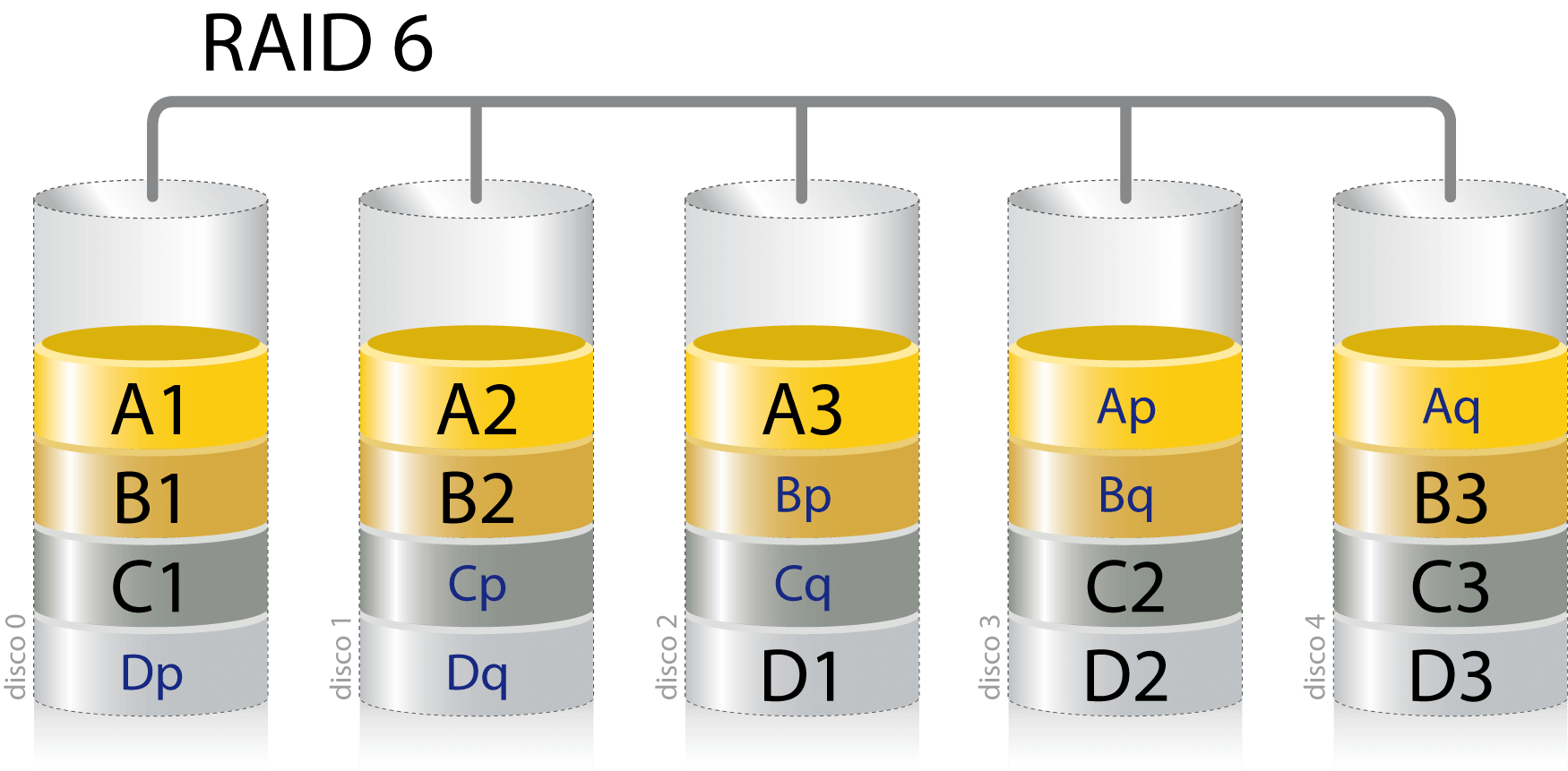EXPERIENCED RAID 6 Data Recovery Specialists
RAID 6 Data Recovery from Dell | Compaq | IBM | Lacie | HP | Iomega | G-RAID | Seagate | Buffalo | Western Digital | Maxtor | Apple / Mac | Not Recognized & Failed Servers
Why Choose File Savers to Recover Your IMPORTANT Data!
|
|
Why File Savers for your RAID 6 Data Recovery:
Our experienced RAID engineers have recovered hundreds of RAID's over the years from all types of failures and system types. We specialize in RAID 6 data recovery from all types of servers and NAS devices. If your RAID 6 storage can be recovered, we will recover it.
We use the most advanced equipment, techniques and tools to assist in our RAID 6 recovery efforts so we can make sure we get your data back as quickly as possible. We specialize in RAID 6 data recovery from all types of media storage brands and devices. We also recover RAID 6 data from all file systems, operating systems and failure types.
We recover all data types from RAID 6 servers including but not limited to; Quickbooks, Peachtree, Microsoft SQL, My SQL, all database file types, Microsoft Exchange, Outlook, all Microsoft Office Documents, PDF, All design files, all picture and image files, all video files, All CAD files, files and allot more. No matter how proprietary your files might be, we recover them from RAID 6 servers and RAID 6 NAS systems. When you simply can't afford to lose your RAID 6 data, File Savers is the answer.
Common RAID 6 Failures that Require Data Recovery
Electrical related hardware failures: are the most common RAID 6 failures that require professional data recovery. These failures include server components such as the RAID controller, motherboard, RAM, power supply units or backplane. These tend to be the most common failures that require specialized data recovery for RAID 6 servers because they have such a high fault tolerance that help prevent data loss from hard drive failure.
These failures can take place at any time leaving you scrambling to recover your data. When your RAID 6 controller or other server components fail, it can result in a lost RAID configuration, false positive drive failures and more. Many times, the only way to get your data back is to have it recovered by File Savers Data Recovery.
The 2nd most common failure that requires data recovery is multiple hard drive failures. RAID 6 multiple hard drive failure requires 3 hard drives to fail sequentially in order to lose access to your data. The truth is they don't usually fail at the same time. One or 2 drives usually fail first and the failure goes unnoticed until a third drive fails. Sometimes, a second and third drive will fail during the rebuild of a newly replaced drive but its not common.
If your RAID 6 is failed due to multiple drive failure, it is almost certain that 1 or 2 of the drives have stale data and the last one that failed has current data. Sometimes its difficult or impossible for you to determine the order of drive failure and which drives are stale and which ones are current. Its absolutely critical that the stale hard disks do not become included back into the array at any time. If the stale hard drives are used to rebuild the array, it will corrupt your data leaving your data useless. That's why you need professional data recovery service from a leading RAID 6 data recovery expert. We have risk free and proprietary ways of finding and removing the stale hard drives so we can provide you the most current and accurate recovery results.
What to Do When Your RAID 6 Server Fails:
If your RAID 6 goes down and you lose access to your data, we highly recommend that you turn your machine off and do not continue any recovery, restore or rebuild attempts yourself. It is extremely common for IT guys to feel pressure and we understand you want and need to have your server and data up and running as quickly as possible. Mind you, this is where we see data lost, companies go out of business and IT guys fired. We see many cases every year where IT guys destroy any chance of recovery because they attempted to recover, rebuild or restore their RAID 6 data themselves. We don't want to see that happen to you. Let us help you so we can make you the hero.
Because of the complexity of the way data is striped across the array and the variety of different RAID 6 configurations that exist, its critical that the RAID 6 data recovery is completed by one of File Savers experienced and specialized RAID engineers.
| Data Recovery for RAID 6 Failures: | ||
Physical Failure |
User Error |
Logical Failure |
Multiple drive failure |
Deleted data |
Virus, trojan or worm |
RAID 6 | Types of Operating Systems Supported: |
||
All Windows OS VMware
|
All Mac OS |
All Linux OS |
RAID 6 | Types of Operating Systems Supported: |
||
All Windows OS VMware
|
All Mac OS |
All Linux OS |



























